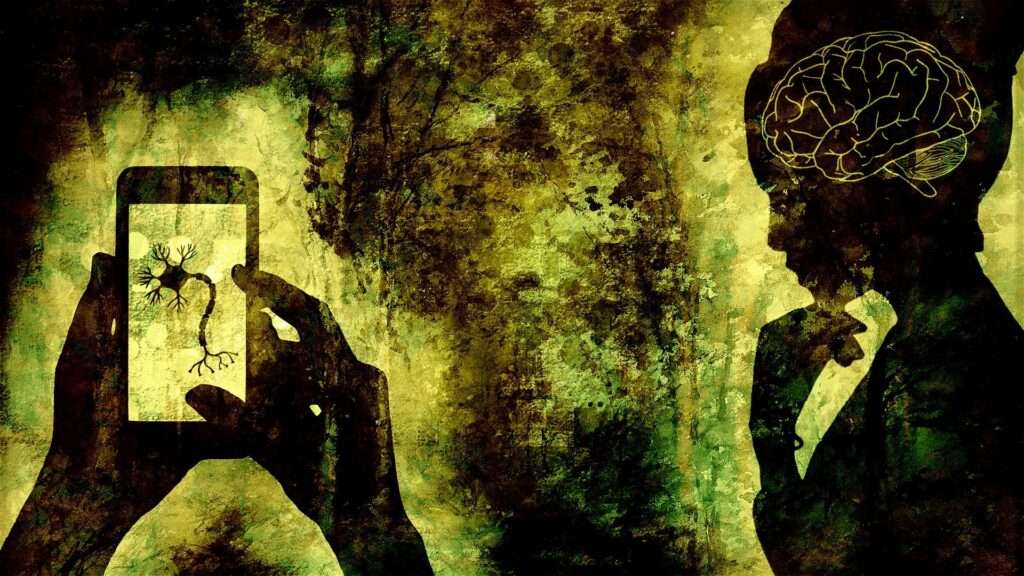
If you feel an extreme change in your emotions, thoughts, perceptions, and behaviour then you should check for mental illness symptoms. It has been noted a high treatment gap in cases of mental illness (>60%). This is because of little to no information and a lack of awareness. Hence it is important to understand the seriousness of the observed symptoms and their causes. Symptoms of mental illness are very diverse and depend on multiple factors including the state of the brain, surrounding conditions, age, sex, family income, and culture. However, common symptoms have been observed irrespective of their situations. The following 11 unusual emotions, thoughts, perceptions, and behaviours can affect mental health.

1. Change in sleeping and eating pattern
Dramatic changes in sleep patterns such as sleeping too much or too little as compared to your previous routines indicate you might be depressed. Similarly, a change in appetite could be due to your mental illness such as little to no eating or extra eating. This is because of a disturbance of the hypothalamus of your brain which controls internal stimuli including sleeping and eating. If these symptoms are observed for only a few days, it might be due to other reasons such as excessive tiredness. If it remains for longer you should consult with Psychiatrists.
2. Extreme changes in moods or feelings
A change in mood is normal in life and indicates good mental health. However, if your limbic system (part of the brain) is affected by an illness you might observe rapid or dramatic shifts in emotions and behaviour without a reason. In that condition, you might feel depressed, hearted, worried, panicked, sad, hopeless, nervous, disconnected from yourself or your surroundings, and have a sense of unreality, and irritability. For example, feeling nervous before an interview is normal because your body releases excess adrenaline. However, if you often feel worried, panicked, sad, and hopeless without any clear reason, it could be a sign of anxiety or a panic disorder.
3. Uncontrollable emotions
Our emotions are crucial for communicating with each other. However, if one emotion remains for longer and does not change according to the situation then it can be an indication of mental illness like sadness or depression. If you are not able to control your emotions a distinct or rapid mood swing towards opposite ends of the spectrum might be an important indicator of mental illness. For example happiness to sadness and vice-versa. This is also due to changes in the limbic system of your brain. Another example could be mania in which a person is happy always in all situations including sad moments.
4. Illogical thinking
Unusual delusions or thinking like a child in an adult or belief about magical events and away from reality can be an indicator of obsessive-compulsive disorder or schizophrenia. In addition, thinking about helplessness, and worthlessness. For example, “I am not a good son or husband or father” without understanding the others. Another example could be “no one can help me” or understand me. If these kinds of thinking persist you should consult with Psychiatrists.
5. Difficulty interacting
Most often, if you are not able to understand or relate with your loved one, you may have some mental disorder. This can happen because you are not putting yourself in someone else’s shoes to understand their perspective. As a result, you might think others are wrong even when they are right. In addition, extreme irritability with surrounding people is often noted and because of that, we don’t feel to interact with others.
6. Low energy
The low energy level is not always linked with a mental disorder. Some mental disorder has higher energy levels such as mania. However, if someone fails to do their everyday activities and tasks or self-care, they will have low energy levels in their body. This can be linked to the change in eating and sleeping habits. One of the reasons could be mental illness.
7. Loss of interest
The changes in your emotions, thoughts, perceptions and behaviour can suppress your interest in family, friends, and activities that bring happiness and pleasure. The reason could be a mental illness that leads to a loss of initiative or desire to participate in any activities.
8. Social withdrawal
The disorder of perception like hallucinations in schizophrenia will lead to social withdrawal and loss of activities. The same people, society, and activities you enjoyed previously but now you can’t, the reason might be a mental disorder.
9. Drop-in functioning
An unusual drop in regular work such as office, school, sports, or work site can be due to a mental disorder. In addition, if you have difficulty performing familiar work, you used to complete that task easily. These symptoms can be a concern about your mental health.
10. Unusual behavior
Behaviour change is one of the crucial symptoms of identifying a mental disorder. This can be easily identifiable by the people surrounding you. The odd or uncharacteristic behavior can be due to many reasons and one of the reasons could be a mental disorder.
11. High sensitivity
Heightened sensitivity of sense organ systems such as to sights, sounds, smells, or touch may be a concern about your mental health due to sensory processing disorder. In that case, you will always feel like avoiding stimulating situations.
The reason for these mental illnesses could be biological, psychodynamic and social factors. An example of biological factors could be a change in neurotransmitters in our bodies. Another example can be low levels of serotonin and non-epinephrine that induce depression in our body. In addition, Our surroundings including cultural and psychological play a vital role in our mental health.
Calculate your mental health index based on the above parameters to know the current status of your mental health.

